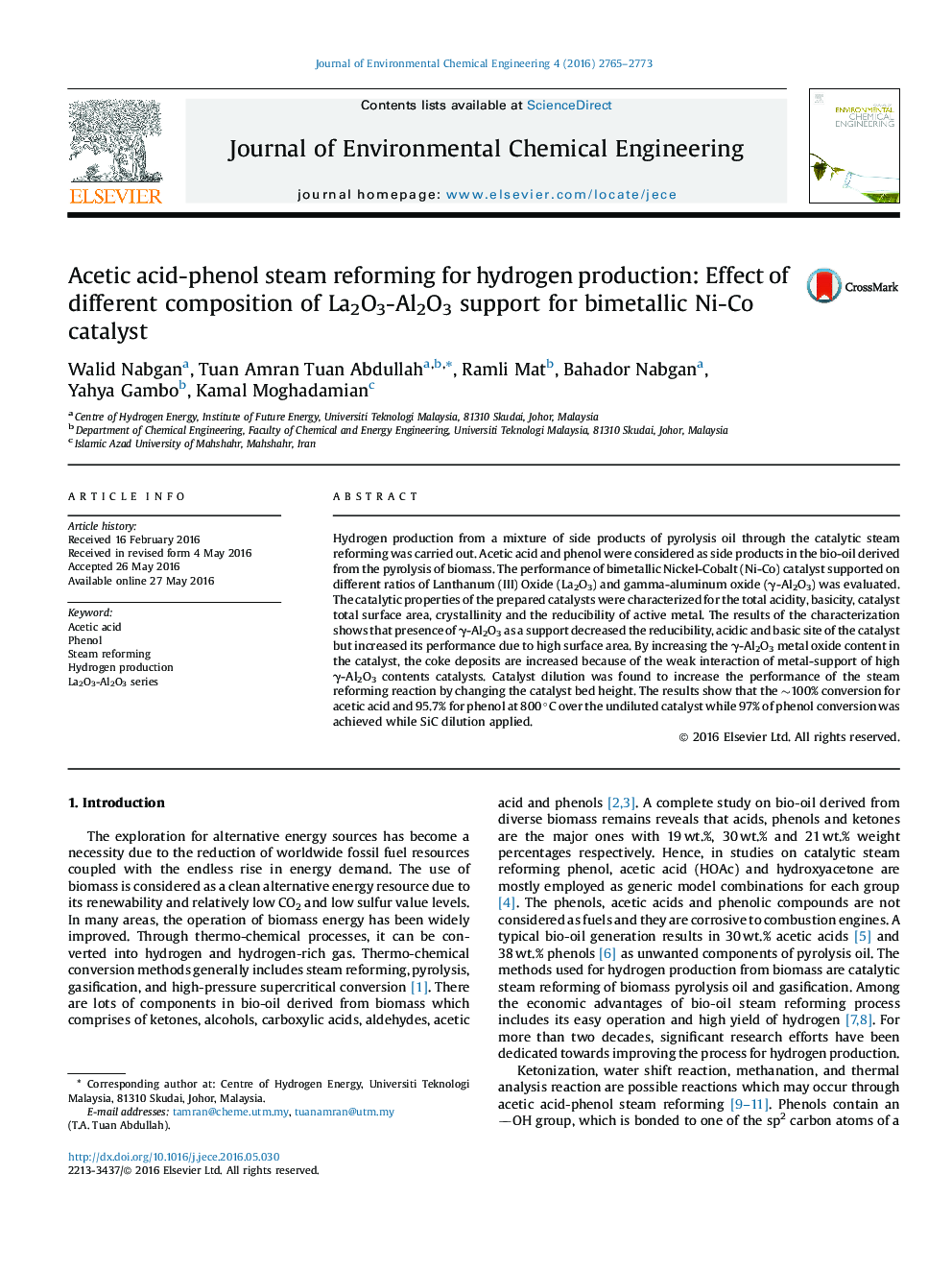| Article ID | Journal | Published Year | Pages | File Type |
|---|---|---|---|---|
| 221541 | Journal of Environmental Chemical Engineering | 2016 | 9 Pages |
•Hydrogen production from acetic acid-phenol steam reforming using bimetallic Ni-Co supported on different composition of La2O3-Al2O3 was studied.•γ-Al2O3 as a constituent in the NC/La catalyst decreased the reducibility, acidic and basic site of the catalyst.•γ-Al2O3 increases the catalyst performance toward better phenol conversion due to its high surface area but favorable for coke formation.•Catalyst dilution increased the activity of the catalyst towards phenol conversion and hydrogen production.
Hydrogen production from a mixture of side products of pyrolysis oil through the catalytic steam reforming was carried out. Acetic acid and phenol were considered as side products in the bio-oil derived from the pyrolysis of biomass. The performance of bimetallic Nickel-Cobalt (Ni-Co) catalyst supported on different ratios of Lanthanum (III) Oxide (La2O3) and gamma-aluminum oxide (γ-Al2O3) was evaluated. The catalytic properties of the prepared catalysts were characterized for the total acidity, basicity, catalyst total surface area, crystallinity and the reducibility of active metal. The results of the characterization shows that presence of γ-Al2O3 as a support decreased the reducibility, acidic and basic site of the catalyst but increased its performance due to high surface area. By increasing the γ-Al2O3 metal oxide content in the catalyst, the coke deposits are increased because of the weak interaction of metal-support of high γ-Al2O3 contents catalysts. Catalyst dilution was found to increase the performance of the steam reforming reaction by changing the catalyst bed height. The results show that the ∼100% conversion for acetic acid and 95.7% for phenol at 800 °C over the undiluted catalyst while 97% of phenol conversion was achieved while SiC dilution applied.
